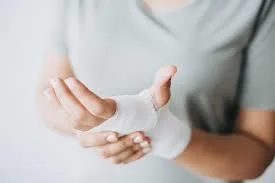HOUSTON PERSONAL INJURY LAWYER
Being injured in an accident can be life-changing. Accident victims must deal with pain, physical limitations, costly medical bills, and lost wages. Often people will have to deal with the emotional injuries that often accompany the physical and financial injuries from the accident. In combination, these can not only have an immediate impact on a person’s life but also affect a person’s family and their future. What people don’t know is these damages can be recovered after an accident.
What are “damages” in a personal injury claim?
“Damages” are defined as simply the loss someone suffers after an accident. The law provides a way for injury victims to recover the cost or value of the damages. Personal injury damages are generally divided into two categories: economic and non-economic.
Economic Damages
Economic damages, also referred to as “special damages”, are damages that can be readily determined. For example, if a dent in your car costs $1,000 to repair, your economic damage will be $1,000. The following are the economic damages a person can recover after an accident:
- Medical bills
- Pharmacy bills
- Therapy bills
- Cost of surgery
- Out-of-pocket costs
- Property damage
- Lost wages in the past
- Loss of earning capacity in the future
Non-Economic Damages
Non-economic damages, also known as “general damages”, are those that don’t have a set value that can be easily identified. Examples of non-economic damages are:
- Physical pain
- Emotional injuries
- Mental injuries
- Suffering
- Grief
- Disfigurement
- Scars
Non-economic damages are difficult to value because it varies from each person and case. To maximize your non-economic damages, it’s critical to hire an experienced personal injury attorney. Your attorney has strategies to show how the injuries have impacted you and can present a powerful argument for the value of those injuries.
Exemplary Damages
Exemplary, or punitive damages, is another category of damages that may be recoverable from a negligent party. This category of damages is reserved for instances where the conduct of the other party was so bad that they should be punished for their actions. Punitive damages aren’t available in every case. Often punitive damages are awarded in cases involving drunk drivers or intentional conduct.
What Can I Do To Maximize My Damages After An Accident?
Economic and non-economic damages are how cases are valued. If you have low economic and non-economic damages, then the value of your personal injury case will be low. An experienced personal injury lawyer will know how to present and argue your case to maximize your financial compensation. As an accident victim, you can do the following to help your case:
- Report the accident to the proper authorities. It’s important to document the accident
- Take photographs of the accident scene or the condition that caused you to be injured
- Get the names of any witnesses. Their accounts of the accident will be vital to your claim
- Seek immediate medical care. It’s important your condition and injuries are documented as close to the time of the accident as possible. Otherwise, the insurance company or responsible party will argue your injuries were the result of some other event
- Follow the recommendations of your healthcare provider. Any delay, gaps in treatment or no-shows will be interpreted as your injuries aren’t severe and treatment wasn’t necessary
Get Help From An Experienced Personal Injury Lawyer in Texas
After an accident, don’t delay in seeking legal help. Each day that passes after an accident potentially jeopardizes your health as well as your legal claim. An experienced personal injury lawyer can help you present a compelling picture of your damages so that you can receive maximum compensation. Call the Top-Rated attorneys at Hernandez Sunosky, LLP at (713) 981.4100 for a no-cost legal consultation. We are available 24/7 to answer your questions.

